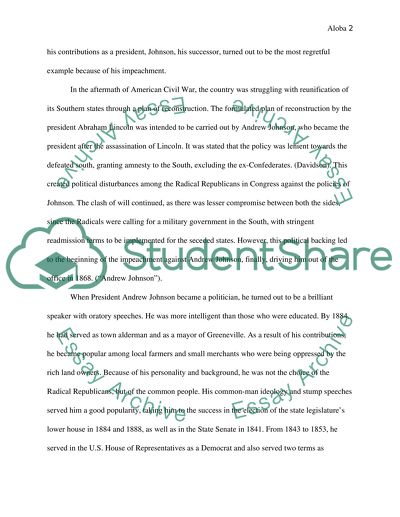Cite this document
(“The Impeachment of President Andrew Johnson Essay”, n.d.)
The Impeachment of President Andrew Johnson Essay. Retrieved from https://studentshare.org/history/1639950-the-impeachment-of-andrew-johnson
The Impeachment of President Andrew Johnson Essay. Retrieved from https://studentshare.org/history/1639950-the-impeachment-of-andrew-johnson
(The Impeachment of President Andrew Johnson Essay)
The Impeachment of President Andrew Johnson Essay. https://studentshare.org/history/1639950-the-impeachment-of-andrew-johnson.
The Impeachment of President Andrew Johnson Essay. https://studentshare.org/history/1639950-the-impeachment-of-andrew-johnson.
“The Impeachment of President Andrew Johnson Essay”, n.d. https://studentshare.org/history/1639950-the-impeachment-of-andrew-johnson.


